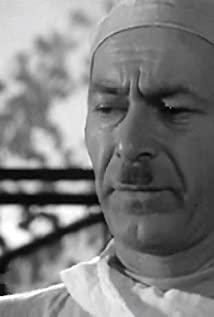You once felt sorry for your wife, and she thought you didn't love her enough, so she committed suicide. You have been feeling guilty for more than ten years, but not all the time, you just think of her when you are sad. One day, your dead wife suddenly appeared in front of you...
Solaris has always been a mystery to scientists. Scientists built a space station to study him specifically, but for many years there was no theoretical As a result, only some paranormal and unexplainable events occurred. Of the 80 or so people, only three were left, and one of them committed suicide, Giribaan, a friend of psychiatrist Kelvin.
The space station was forcibly shut down, and Kelvin went to investigate. He thought all these phenomena were psychological problems, but he saw the death of his friend, and two strange people. Most importantly, in the space station , he saw his long-dead wife Harry. Is this his dead wife resurrected? Of course not, she's just a replica. How did it come about?
It turned out that there is a "sea of thoughts" around Solaris, and he can penetrate deep into the subconscious of human beings, so that the guilt, unhealthy desires, and suppressed temptations that exist in the subconscious of human beings are manifested in the form of materialization. This materialized person exists in memory and is synonymous with sin. Humans are made of atoms, and the images materialized by the sea of thought in space battles are made of neutrinos.
The materialized Harry fell in love with Kelvin. When Kelvin saw his dead wife, the guilt hidden in his heart was slowly released. He hoped to make up for his mistakes and love his wife again. But all of this is unfamiliar to the materialized Harry. Who she is, where she came from, and why she came here are all things she doubts. As Kelvin continued to show her his human life through pictures and audio-visual materials, Harry gradually became human, and she fell into pain like this, especially when she knew that she was just a replica who once died for love. when.
The materialized Harry also wanted to commit suicide by taking liquid oxygen, but miraculously survived. This is because Kelvin's sinful subconscious did not disappear, and she continued to appear.
During the contact between Kelvin and Harry, he constantly purifies his soul, constantly reflects on himself, and releases his guilt.
In the end, the materialized Harry disappeared, the result of her willingness, and perhaps only in this way, Kelvin can come out of his sins. Kelvin returned to Earth and saw his elderly father, kneeling on his knees, weeping.
The disappearance of materialized Harry seems to mean the success of Kelvin's redemption. Kelvin once felt sorry for his wife, but he completed the redemption in the space battle. It's like taking a pill of regret. The reality is not like this, what is lost will never come back.
Even if the characters in the tragic memory are resurrected, the experience will still be tragic.
What the whole film wants to say is: Everyone should see the sins in their subconscious and feel ashamed. Only in this way can moral perfection be accomplished. It is necessary to communicate with the "sea of thoughts", analyze yourself, and liberate your sins.
Tarkovsky's film is obscure and difficult to understand, and maybe my feelings above were wrong from the start, and maybe partly right. This is how I understand this film, and each of his shots has a lot of growth points and stimulates the imagination of the audience.
In addition to the philosophical significance of this film, what I like about it is that the pictures at the beginning and end of the film with water plants and the "sea of ideas" constructed by Tarkovsky all embody profound aesthetic connotations.
The film was made in 1972 and won the Special Jury Prize at the Cannes Film Festival that year. Tarkovsky was 40 years old that year.
This is certainly not a movie that can be fully understood by one viewing experience, and I feel like I understand only one-tenth of it. I will re-read it in the future, and I will add it at that time. Maybe at that time, I will overturn all my views.
View more about Solaris reviews











